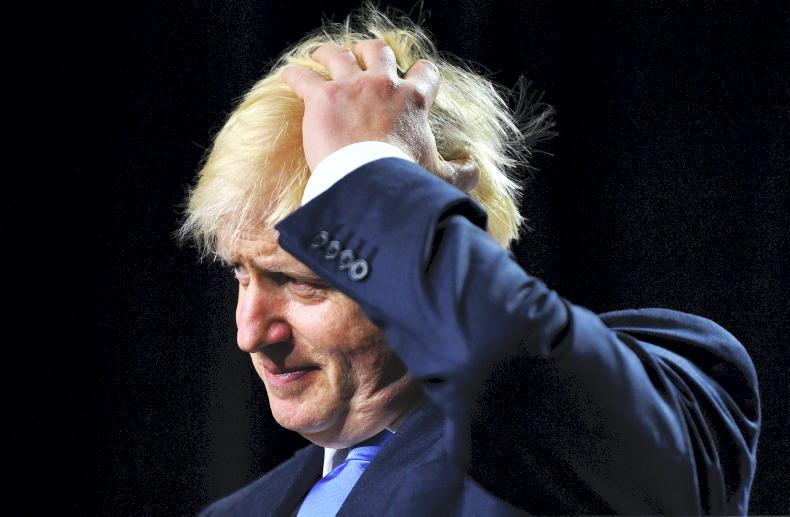Boris Johnson is said to model his public persona and prime ministerial style on that of his hero, Winston Churchill.
But while Boris strives to emulate Churchill in his World War II glory days, he is obviously acutely aware – having written a biography of the man – that his career up to 1940 was less than glittering.
The Dealer is no historian, and would certainly not qualify as a military strategist, but was it not Churchill as First Lord of the Admiralty who championed the debacle at Gallipoli in 1915-16?
He argued that the Allies could open a third front on the Germans and Austro-Hungarians through the Balkans by knocking the Ottoman Empire out of World War I.
Unfortunately for Churchill – and tragically for hundreds of thousands of Anzac, British, Irish, Indian and French troops – the Turks hadn’t read the script and his hope of a relatively simple march on Istanbul turned into a costly and bloody disaster.
The challenges facing Britain today cannot be compared to those of 80 years ago, not to mind a century past. But The Dealer wonders – is the man leading the UK today more like the Churchill of The Great War, or the leader who helped steer Britain through the conflict that followed a generation later?
The answer to that question is obviously on the minds of many others, as it could have long-term implications.
Britain is unlikely to get back to a place where it once again “rules the waves”, but the country is coming close to ruling the airwaves – and for all the wrong reasons.
Reports on petrol queues and empty supermarket shelves have been broadcast across the globe, doing untold damage to the Britain’s’s reputation.
While Johnson’s government has been unwilling to accept the impact of Brexit on its current food and fuel supply difficulties, the introduction of short-term visas for non-UK HGV drivers tells a very different story.
However, an unsettled Britain is not good for Ireland,or the EU. Undoubtedly, Britain’s travails have delivered short-term benefits for Ireland.
For example, the hike in sheep prices this year has certainly been helped by factories’ inability to access cheaper British imports. Similarly, The Dealer notes that uncertainty around British beef supplies has resulted in improved orders for Irish product that could last up to Christmas.
In the longer-term, however, Ireland’s interests would be far better served if Boris managed to morph into a 1940s version of Churchill – and quickly.
It is sometimes forgotten that Churchill actually supported the concept of European economic integration during the late 1940s, albeit with the UK outside the grouping.
Ireland, Europe and Britain need good steady trading and political relations. It is in everyone’s interests.
Even Churchill would agree.
Boris Johnson is said to model his public persona and prime ministerial style on that of his hero, Winston Churchill.
But while Boris strives to emulate Churchill in his World War II glory days, he is obviously acutely aware – having written a biography of the man – that his career up to 1940 was less than glittering.
The Dealer is no historian, and would certainly not qualify as a military strategist, but was it not Churchill as First Lord of the Admiralty who championed the debacle at Gallipoli in 1915-16?
He argued that the Allies could open a third front on the Germans and Austro-Hungarians through the Balkans by knocking the Ottoman Empire out of World War I.
Unfortunately for Churchill – and tragically for hundreds of thousands of Anzac, British, Irish, Indian and French troops – the Turks hadn’t read the script and his hope of a relatively simple march on Istanbul turned into a costly and bloody disaster.
The challenges facing Britain today cannot be compared to those of 80 years ago, not to mind a century past. But The Dealer wonders – is the man leading the UK today more like the Churchill of The Great War, or the leader who helped steer Britain through the conflict that followed a generation later?
The answer to that question is obviously on the minds of many others, as it could have long-term implications.
Britain is unlikely to get back to a place where it once again “rules the waves”, but the country is coming close to ruling the airwaves – and for all the wrong reasons.
Reports on petrol queues and empty supermarket shelves have been broadcast across the globe, doing untold damage to the Britain’s’s reputation.
While Johnson’s government has been unwilling to accept the impact of Brexit on its current food and fuel supply difficulties, the introduction of short-term visas for non-UK HGV drivers tells a very different story.
However, an unsettled Britain is not good for Ireland,or the EU. Undoubtedly, Britain’s travails have delivered short-term benefits for Ireland.
For example, the hike in sheep prices this year has certainly been helped by factories’ inability to access cheaper British imports. Similarly, The Dealer notes that uncertainty around British beef supplies has resulted in improved orders for Irish product that could last up to Christmas.
In the longer-term, however, Ireland’s interests would be far better served if Boris managed to morph into a 1940s version of Churchill – and quickly.
It is sometimes forgotten that Churchill actually supported the concept of European economic integration during the late 1940s, albeit with the UK outside the grouping.
Ireland, Europe and Britain need good steady trading and political relations. It is in everyone’s interests.
Even Churchill would agree.






 This is a subscriber-only article
This is a subscriber-only article











SHARING OPTIONS: